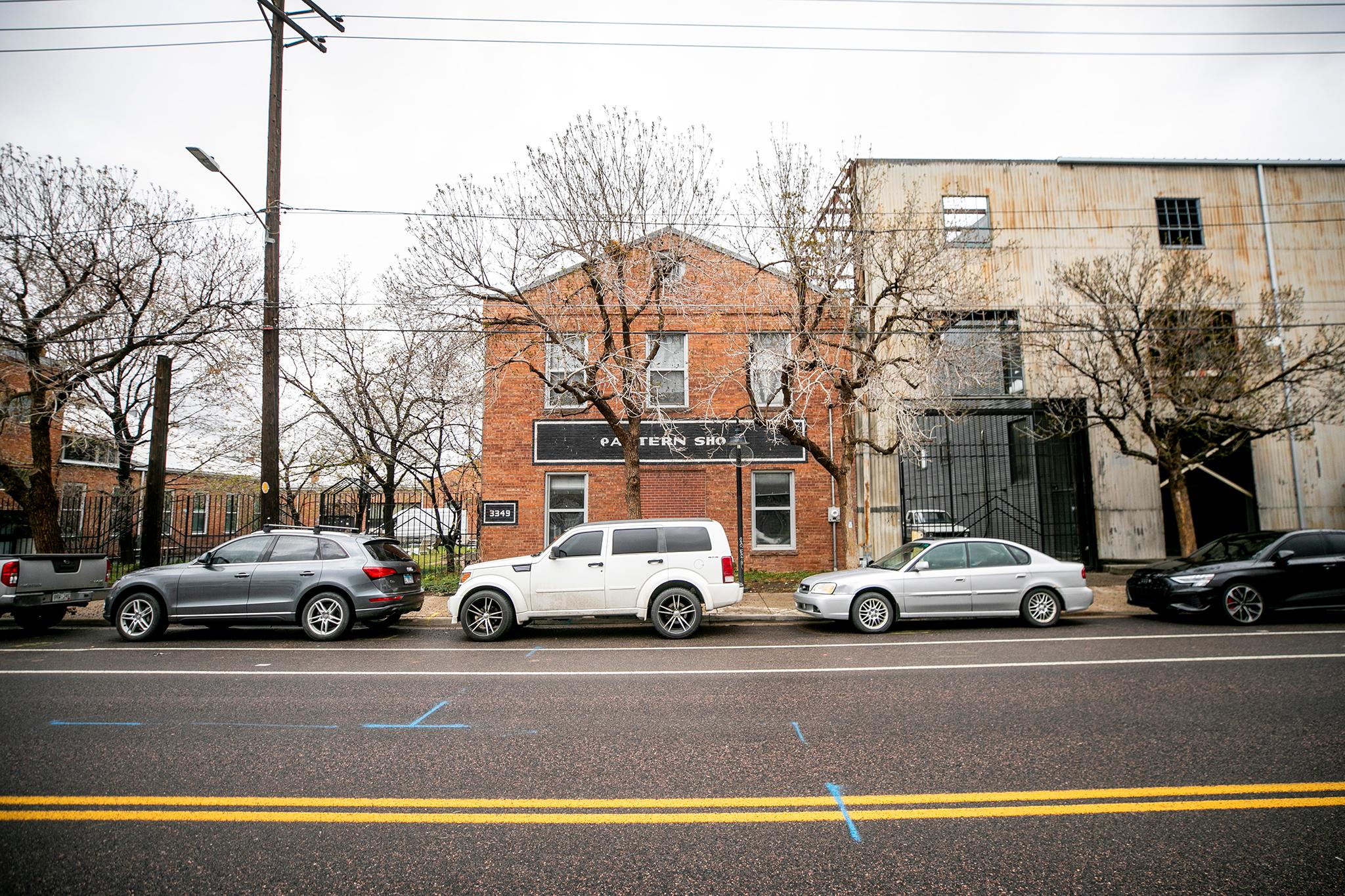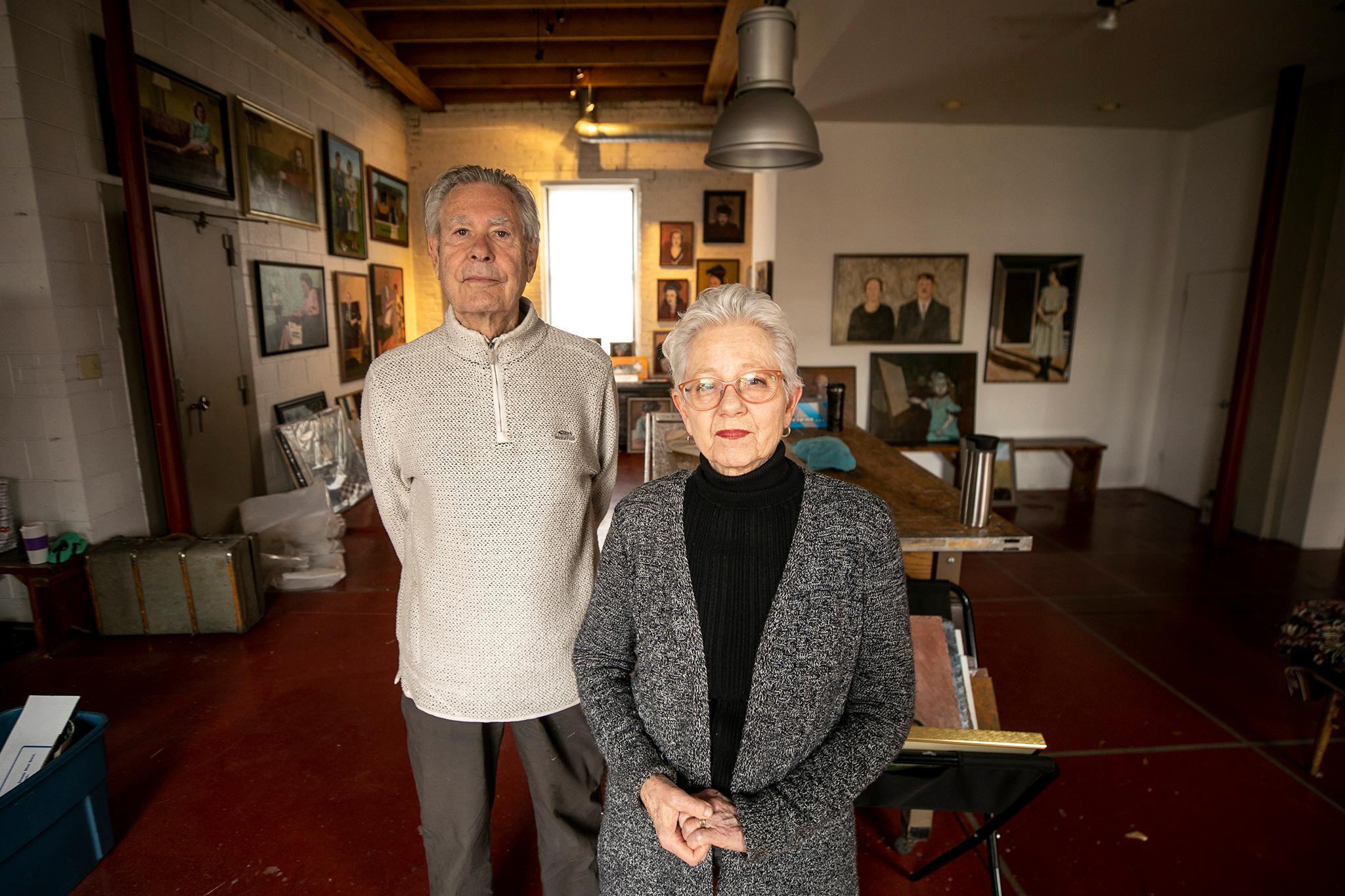The wooden floor creaked under Rexford Brown's feet as he carefully climbed the stairs to the second floor of The Pattern Shop.
The gallery, the oldest in RiNo, has been his home, studio and business for the past 33 years. In his living room, surrounded by red brick walls and oak wood furniture, is a large window that faces north. The light beaming through it bounced off Rex's face, making his gray hairs shine as he stood in front of it. With his arms folded behind his back, he thought back on what used to be a different view.
"We used to be able to crawl under the trains because they would park out here," Rex said. "Our view is gone."
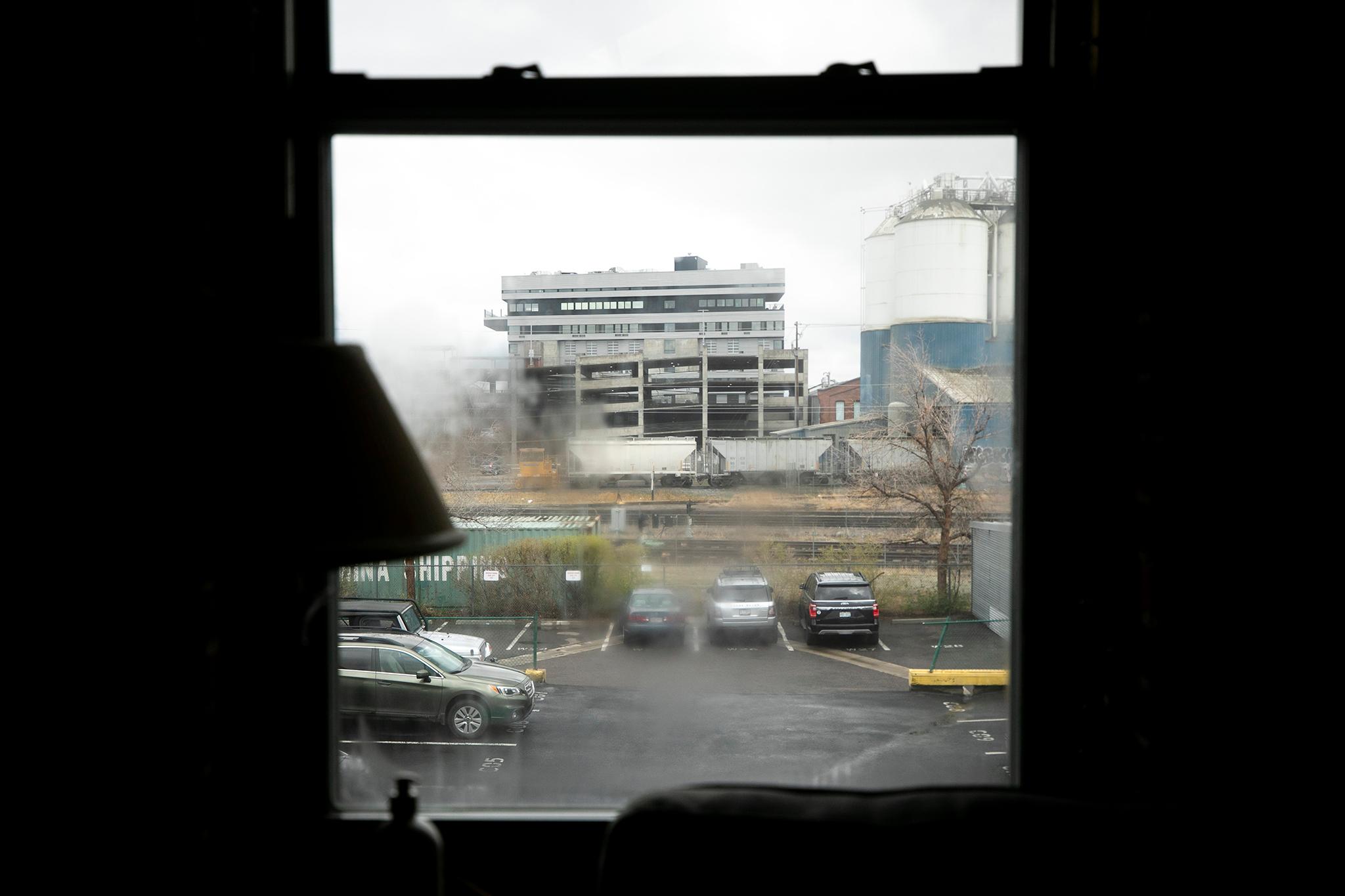
What used to be a sight of just railroad trains, tumbleweeds and junkyard dogs now features a parking garage and the four-star Source Hotel on Brighton Boulevard.
Change, now, has arrived at their own doorstep: The Pattern Shop Studio is closing this week after 33 years.
It will host a farewell party on Saturday, May 6 and Sunday, May 7 from 11 to 3 p.m. Visitors will be able to buy highly discounted paintings by Sharon Brown and bid farewell to the home/gallery.
Rex and Sharon Brown moved into the space in 1991, turning what used to be an old factory site for Colorado gold mining equipment and tools for the sugar beet industry, into an American Institute of Architects award-winning studio and art gallery designed by architect David Owen Tryba.
"We had been thinking about how there's just the two of us in this gigantic home and we're getting old," Rex said. "We were thinking about it, but 10 weeks ago some things happened when we said, we got to do this."
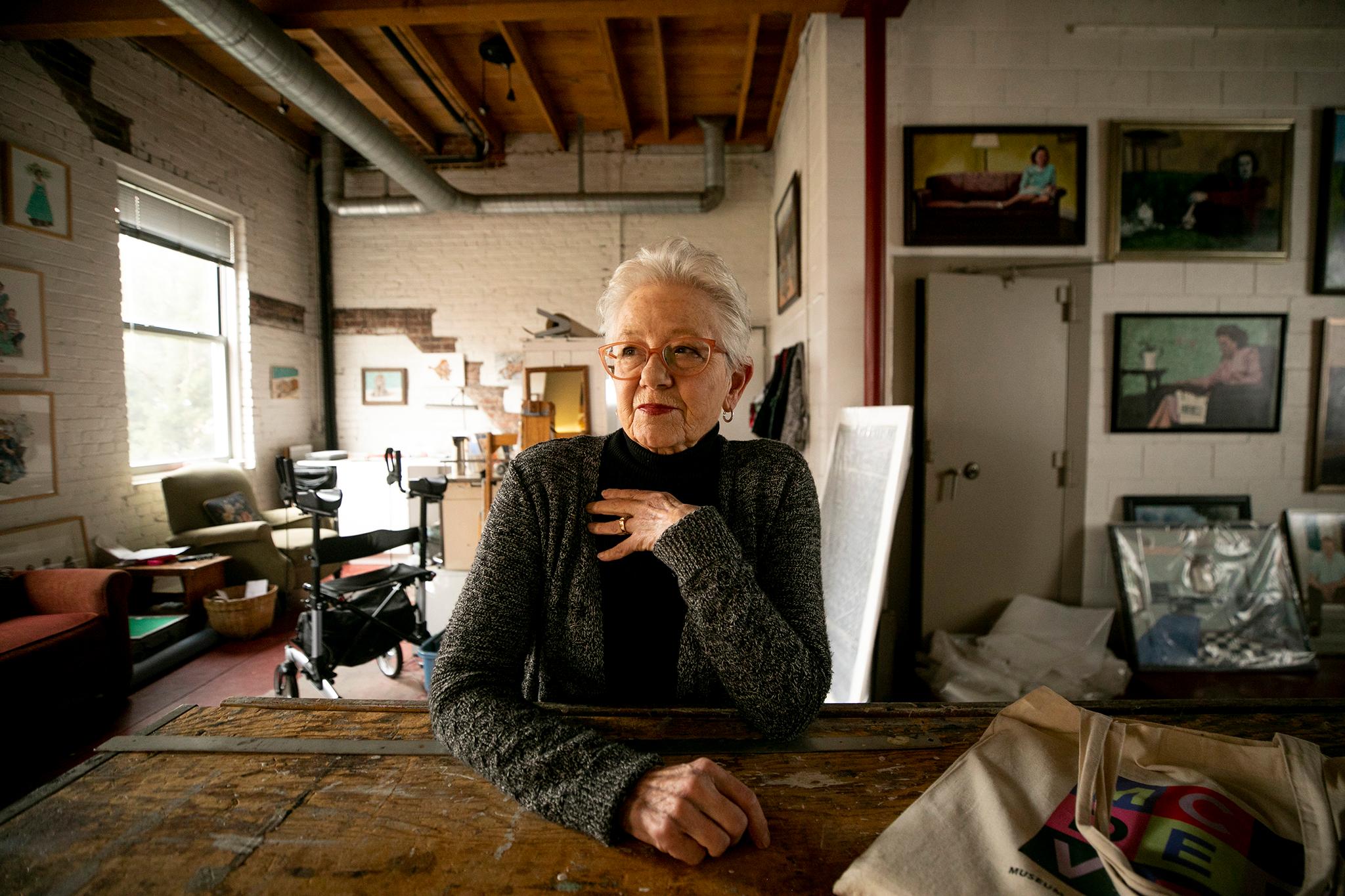
Sharon Brown, the literal artist-in-residence, is a painter enamored with etching memories onto canvas. Her paintings, predominantly portraits, interiors, landscapes and pets, feature colorful, mundane moments in time that beg the viewer to wonder, just as the artist did, if there's a story that's waiting to be told behind the scene.
Sharon grew up in a family of psychiatrists and artists.
"There was always talk about people," Sharon said. "I think what my artwork tends to do is evoke memories in people about their childhoods, their interactions."
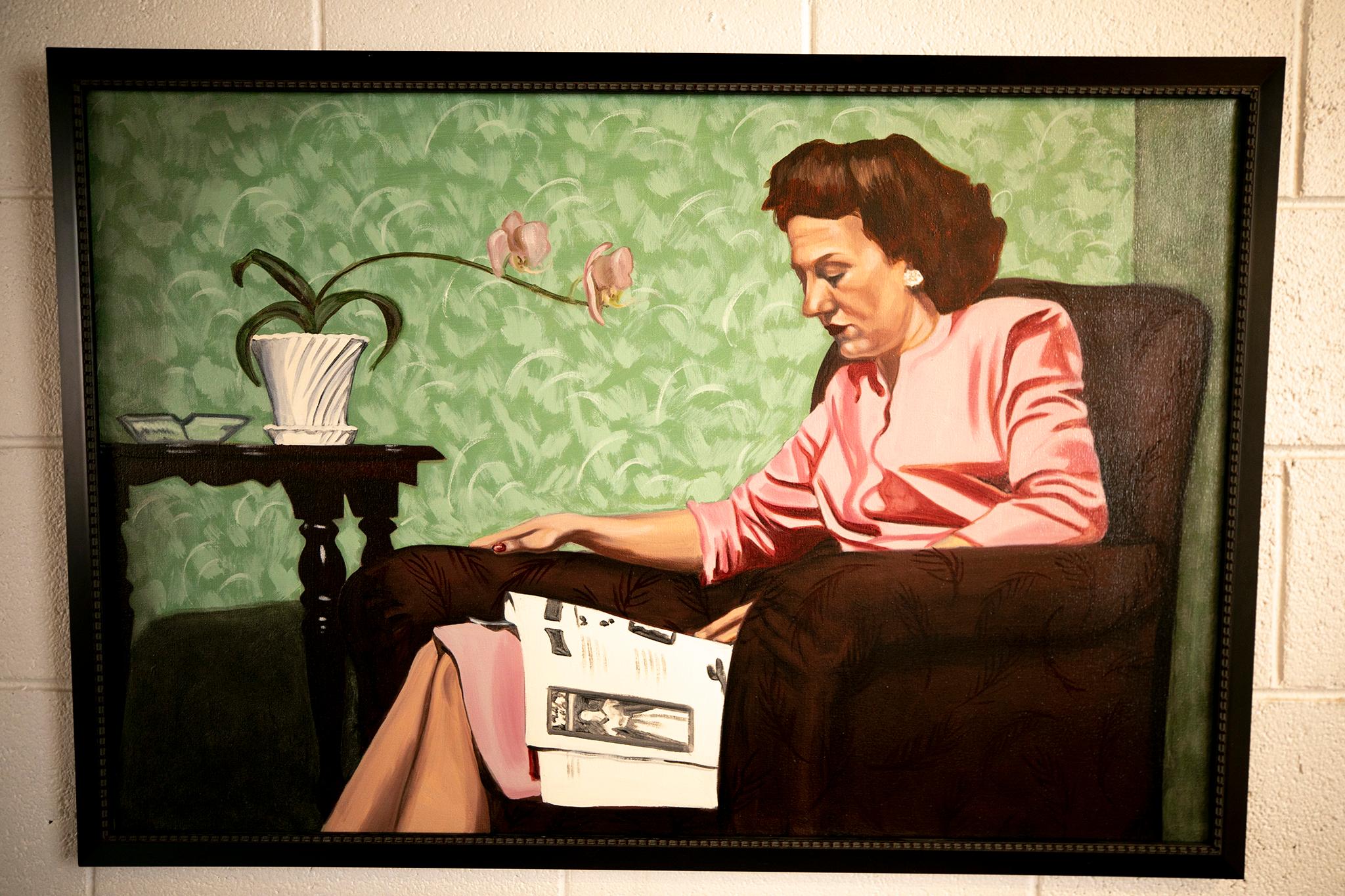
Some paintings have bright blue skies, lime green wallpaper and an array of colorful dresses and suits on the people she depicted. Some are based on black and white images that Sharon would add color to during her creative process.
"I haven't ever had much of an artist block because I'm always collecting things as I go along," Sharon said. "This woman, whose photographs I got out of the trash in my alley, she was my neighbor. I have a whole suitcase full of memorabilia of her life, all of these photographs and letters from 1936 to 1945. I would say I did about close to 90 paintings based on her life."
"Sharon's art is in the context of the home," Rex said. "Whereas many galleries are just blank walls. Really, it's unique."
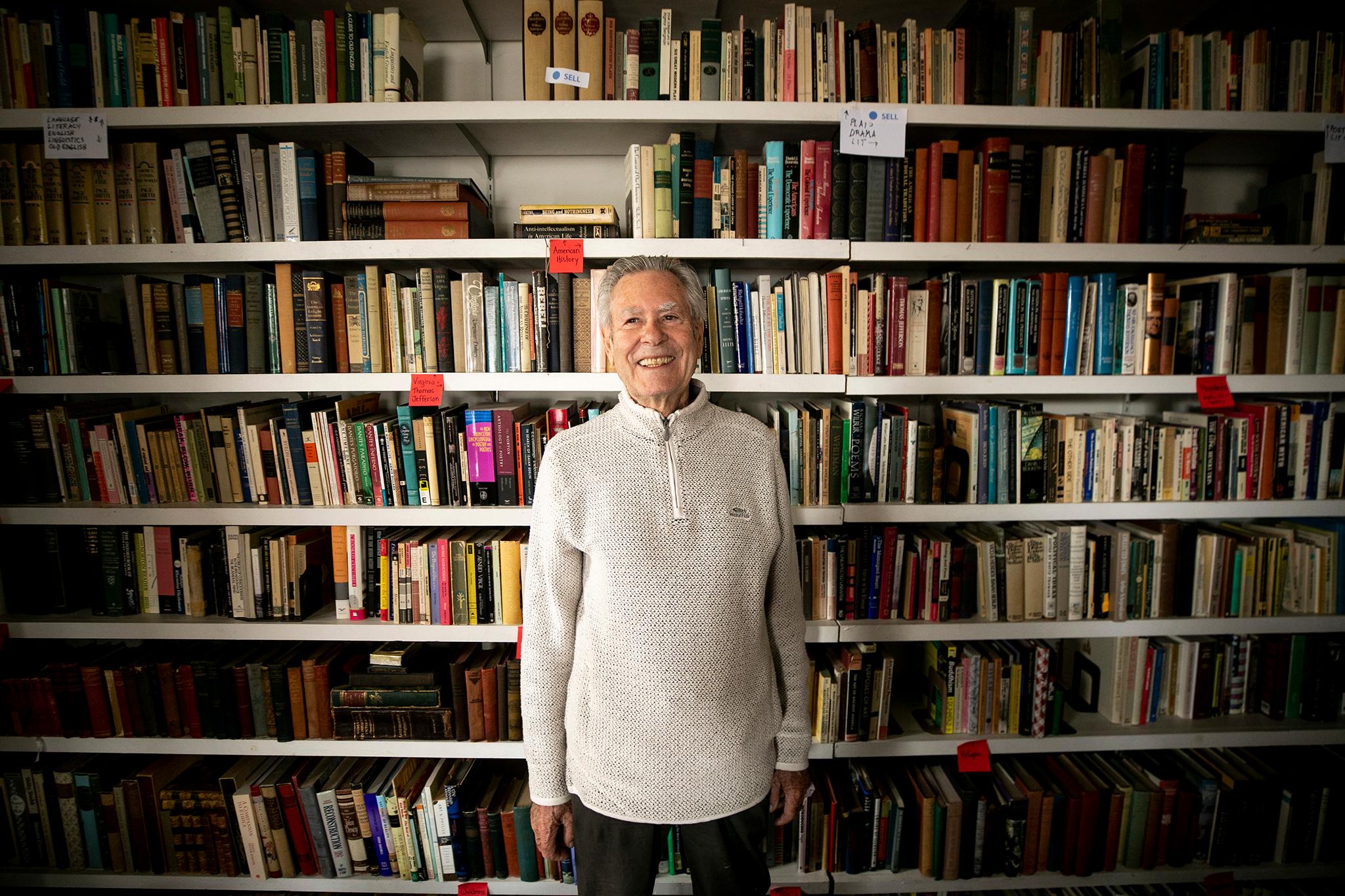
Rex has had a prolific career in education and was even a former principal of one of Denver's first charter schools. He's published dozens of reports on literature, writing, thought, schooling, art and teaching, he was the director of MacArthur Foundation funded center on Policy and the Higher Literacies and was the Director of Teacher Education at the University of Denver College of Education before retiring in 2010.
He holds a PhD in Literature and is an avid reader, holding a large collection of non-fiction books downstairs and fiction on the second floor.
"I've always liked to learn," Rex said. "I like the feel of learning, it was certainly that with me. But also, I think I was lucky to have a painter, a real life painter in the house."
Together, they welcomed strangers into their home that doubled as an art gallery and personal studios and became founding members of the RiNo Art District.
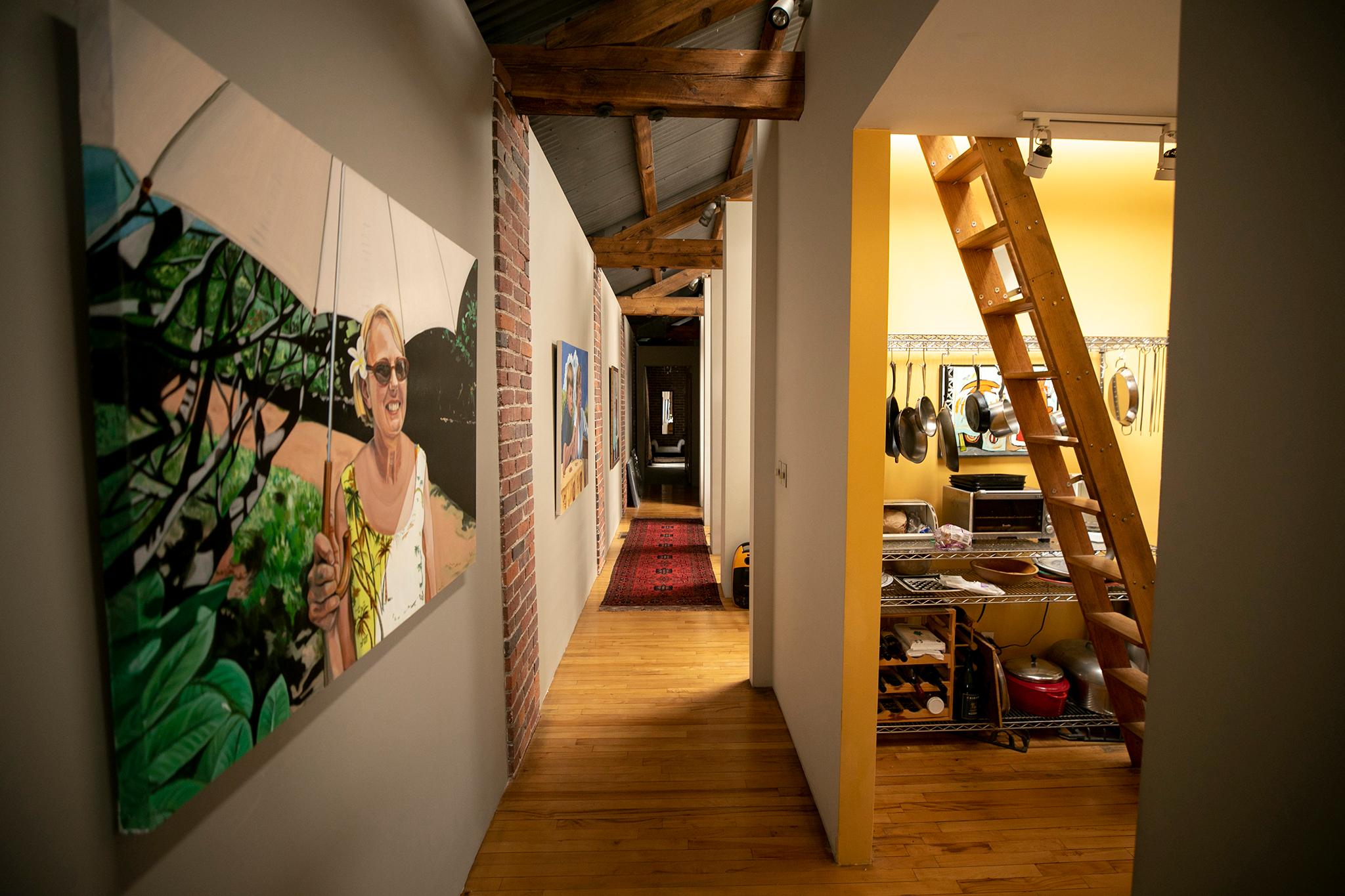
Tracy Weil and Jill Hadley-Hooper founded the River North Art District, most commonly known as the RiNo Art District, in 2005 as an effort to unite artists and advocate for the arts in the area that encompasses the Five Points, Globeville, Elyria-Swansea and Cole neighborhoods.
Through fundraising and advocacy efforts, the nonprofit organization has stamped its influence and seen a lot of artists come and go over the years.
Pattern Shop is the latest gallery in RiNo to close. Ice Cube Gallery closed its doors in 2016, gallery and retail space Svper Ordinary closed in 2017, retail store and art gallery Foreign Form closed in 2020 and the Waiting Room Gallery closed in 2022.
"The district has always been a district of ebb and flow," Weil said. "I'm hoping that somebody who really appreciates the history, the architecture and the founding artists that have owned The Pattern Shop respect that and maybe continue the legacy."
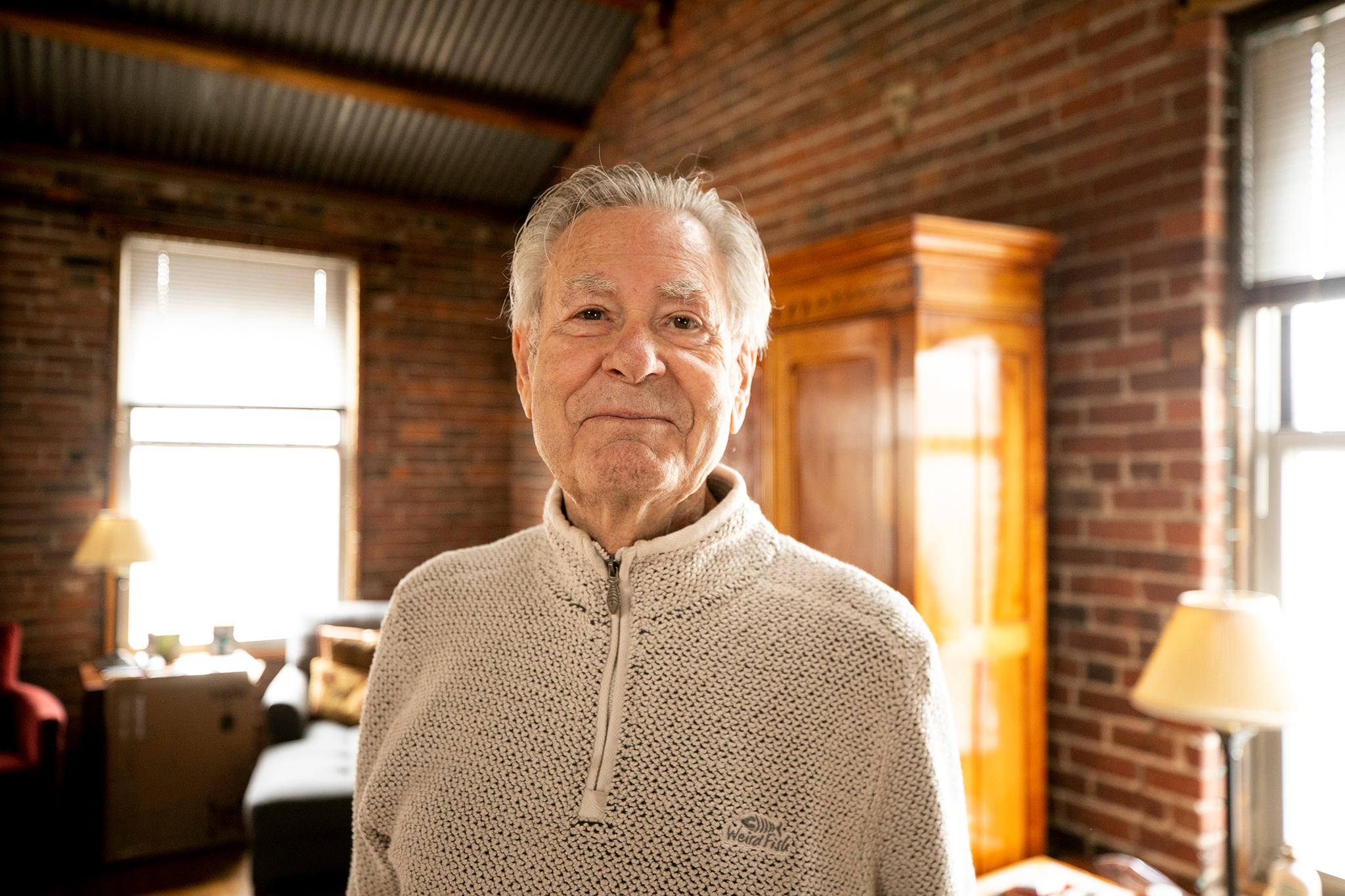
Ten weeks ago, Rex found out that he has Alzheimer's disease. Together, he and Sharon decided it was time to close The Pattern Shop and move into an assisted living facility.
"The good thing is we're doing it while we can do it. As opposed to what I dreamt of, leaving here feet first in the pine box, you know?" Sharon said. "Life doesn't work out that way."
"They've been around before RiNo was even RiNo," Weil said. "[They] were one of the founding members of the art district and they really did some amazing works and showed so many different artists, including myself, over the years."
Charity Von Guinness stepped in as the RiNo Art District executive director in 2022. She moved from Miami in October and immediately knew about The Pattern Shop, noting just how integral they were to building the district from the start.
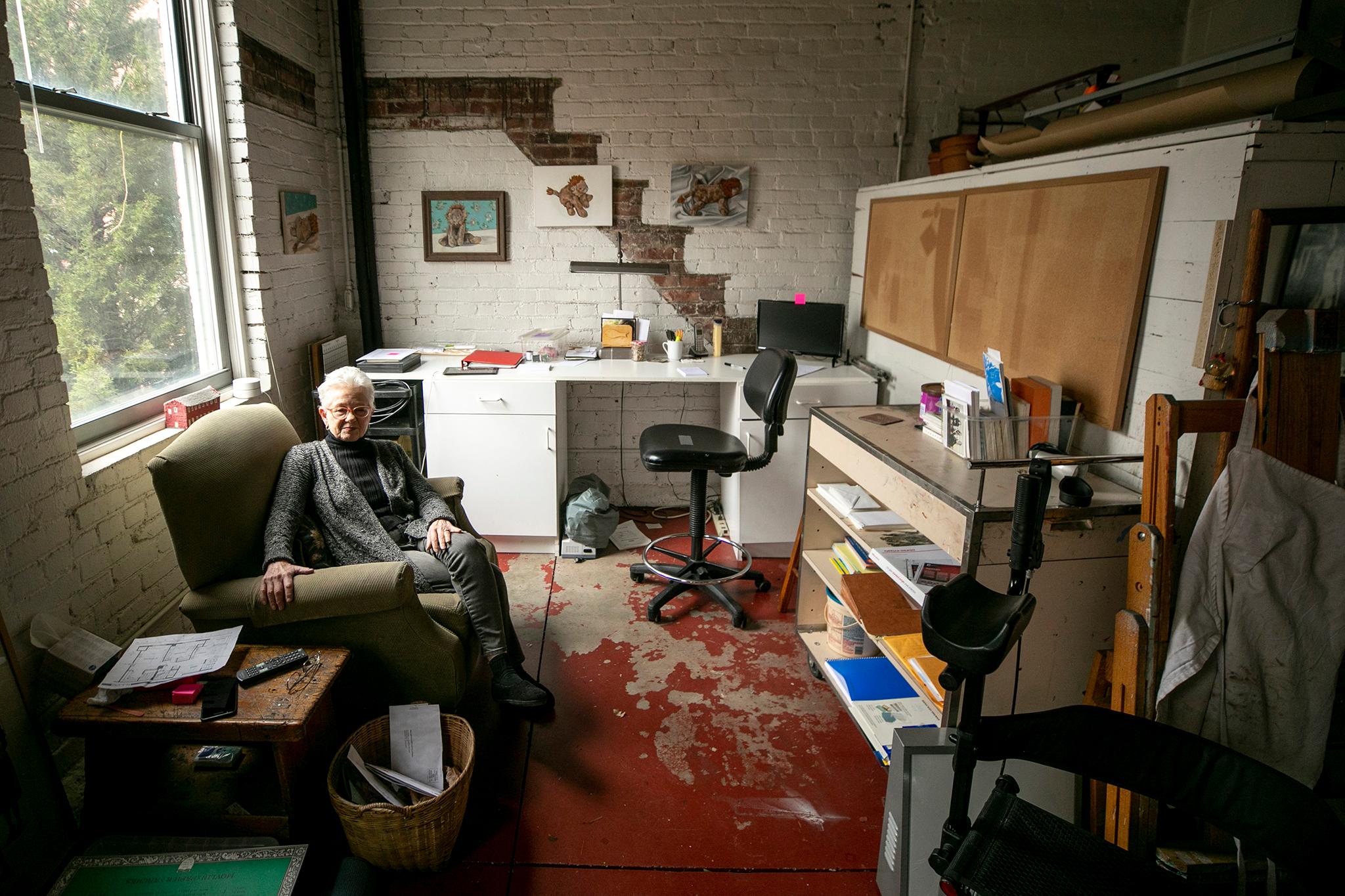
"They certainly have been an icon of the district over the years, so it's very sad to see them go," Von Guinness said. "They have just had a hand in shaping this district from the jump and keeping it focused on art and artists. Their influence and effect on this district and the way it's developed is immeasurable. It's a huge loss for the district entirely."
When asked about the future of the space, Von Guinness said the nonprofit doesn't have the funds to purchase the building, especially since it committed much funding to the RiNo Art Park.
"I think there are ways to work with developers on win-win situations and still helping their bottom line while also keeping the arts here in the district, what gave this district value," Von Guinness said. "We will do whatever we can. Advocacy is a big part of that."
Buying the building is one thing, making it affordable for artists to retain spaces like The Pattern Shop is another.
"Artists need affordable spaces to work. That's kind of why I modeled my space after The Pattern Shop," Weil said. "Working where you live is cheaper than having a studio sometimes, so I think having that model is really a great one for a lot of artists to have."
Von Guinness said she would like to see the building remain a creative space and be in the hands of someone that honors the legacy of Rex and Sharon Brown.
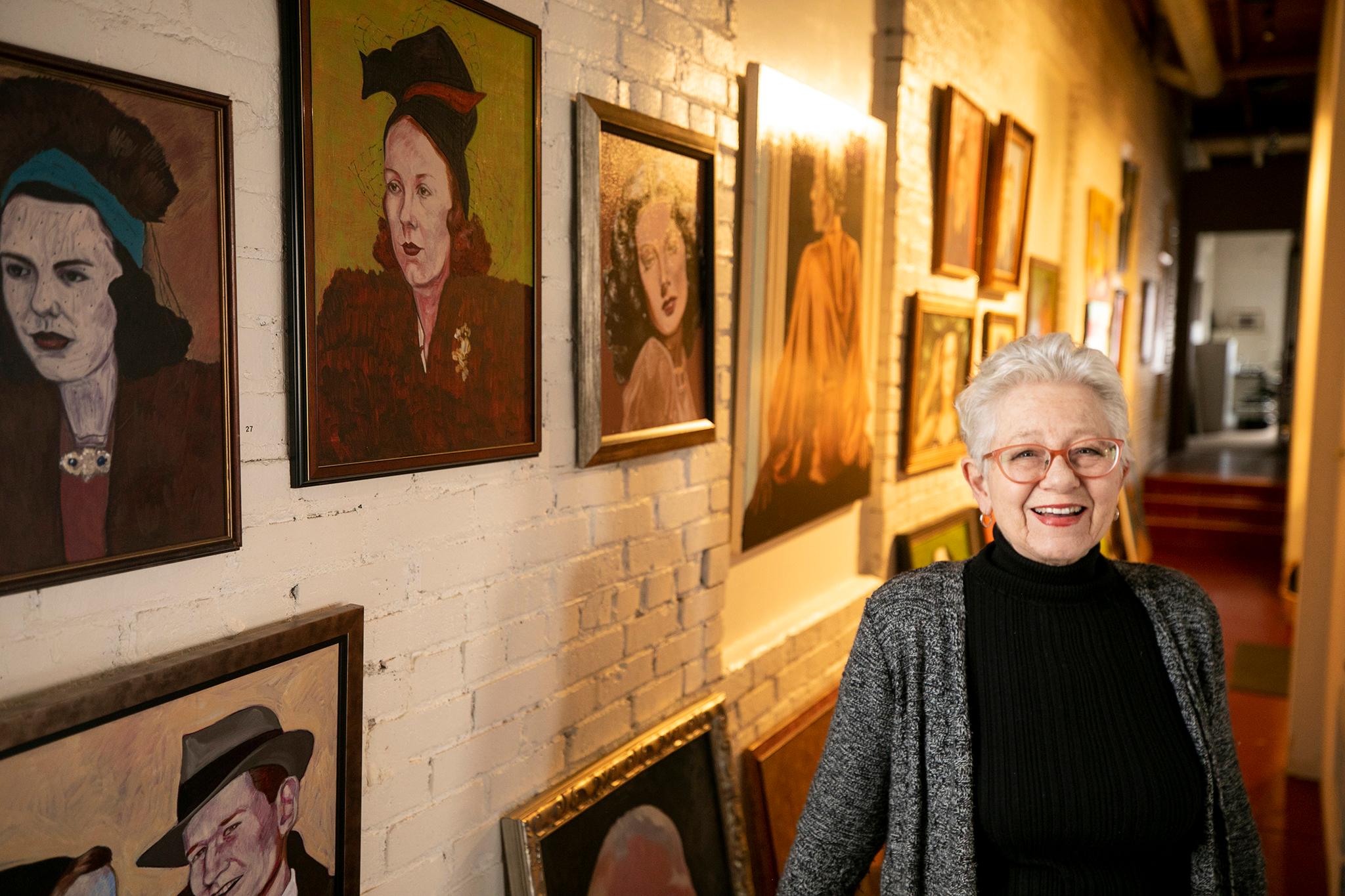
"A couple of months ago when we first made the decision, we were each taking turns weeping uncontrollably," Sharon said. "The tears have kind of dried up at this point, but it's been heartbreaking to have to go through this."
Two great thinkers, Rex and Sharon routinely gathered in their respective studio spaces, brushing through paint or paper, and letting their minds wander inside of an old pattern shop.
And often times, they'd invite visitors to see where art was made, hung up all throughout the house.
"We always felt that we wanted this place to be an inspiration," Sharon said. "To create a space that's ideal for your life. I think a lot of people have come away from here saying, "Oh wow, we could do something like that too.""
The home they built lent itself to talking about art, ideas and what it meant to live, literally, among one's passion.
"I'm most proud that we were able to figure out a method of having shows and just following our noses in terms of what we thought would work," Sharon said. "And it has worked as a meeting place of minds and art appreciators."
